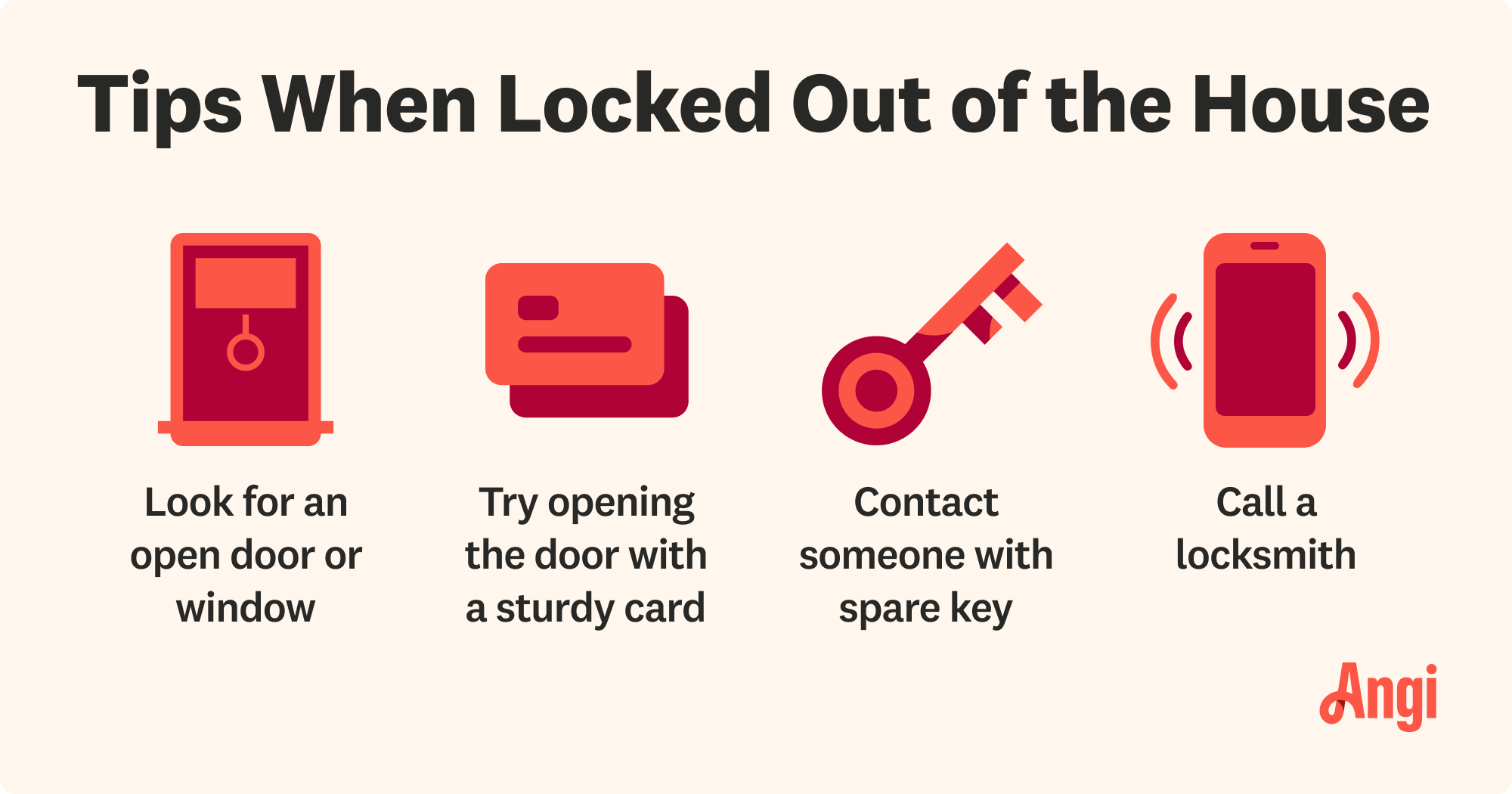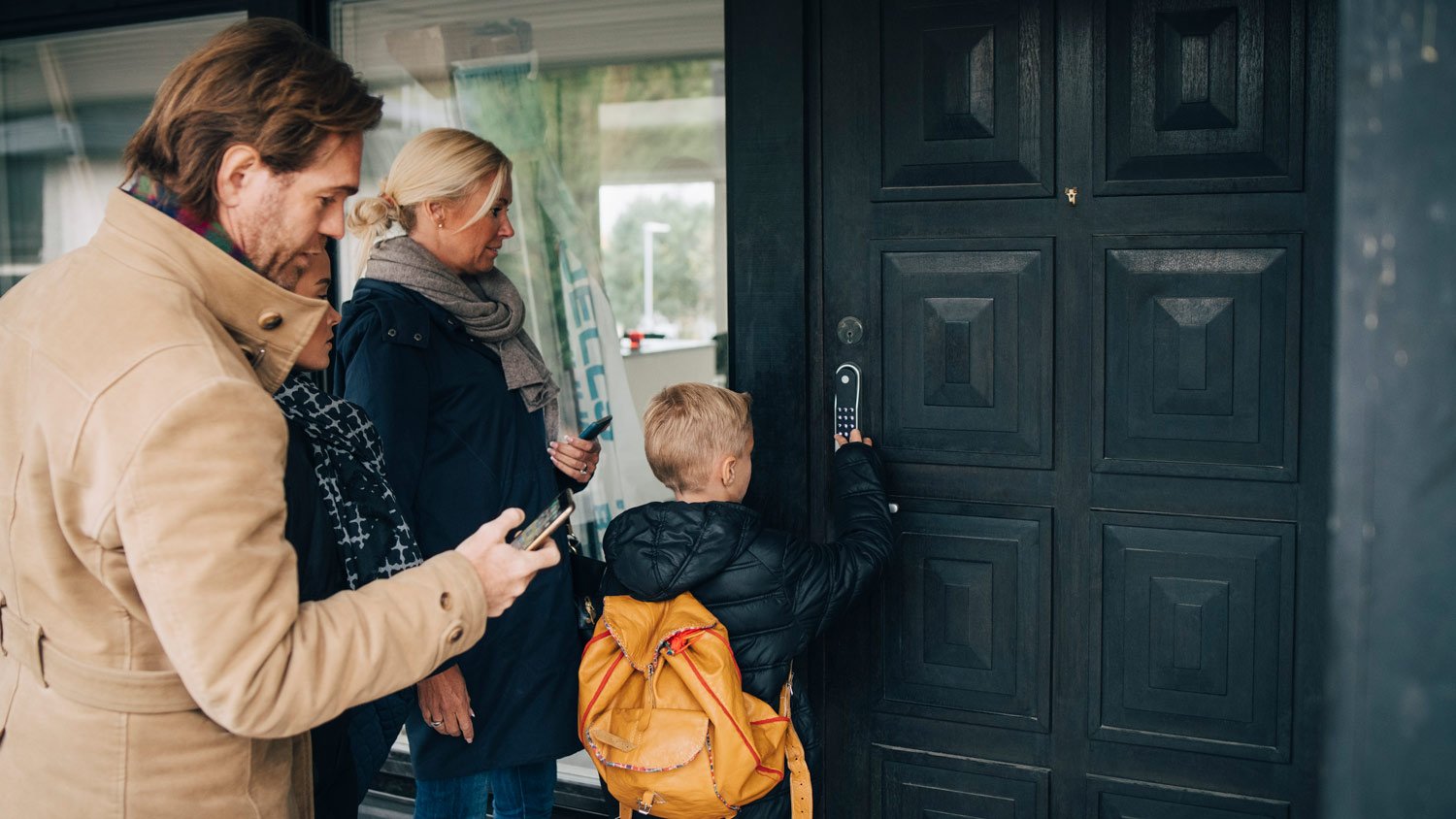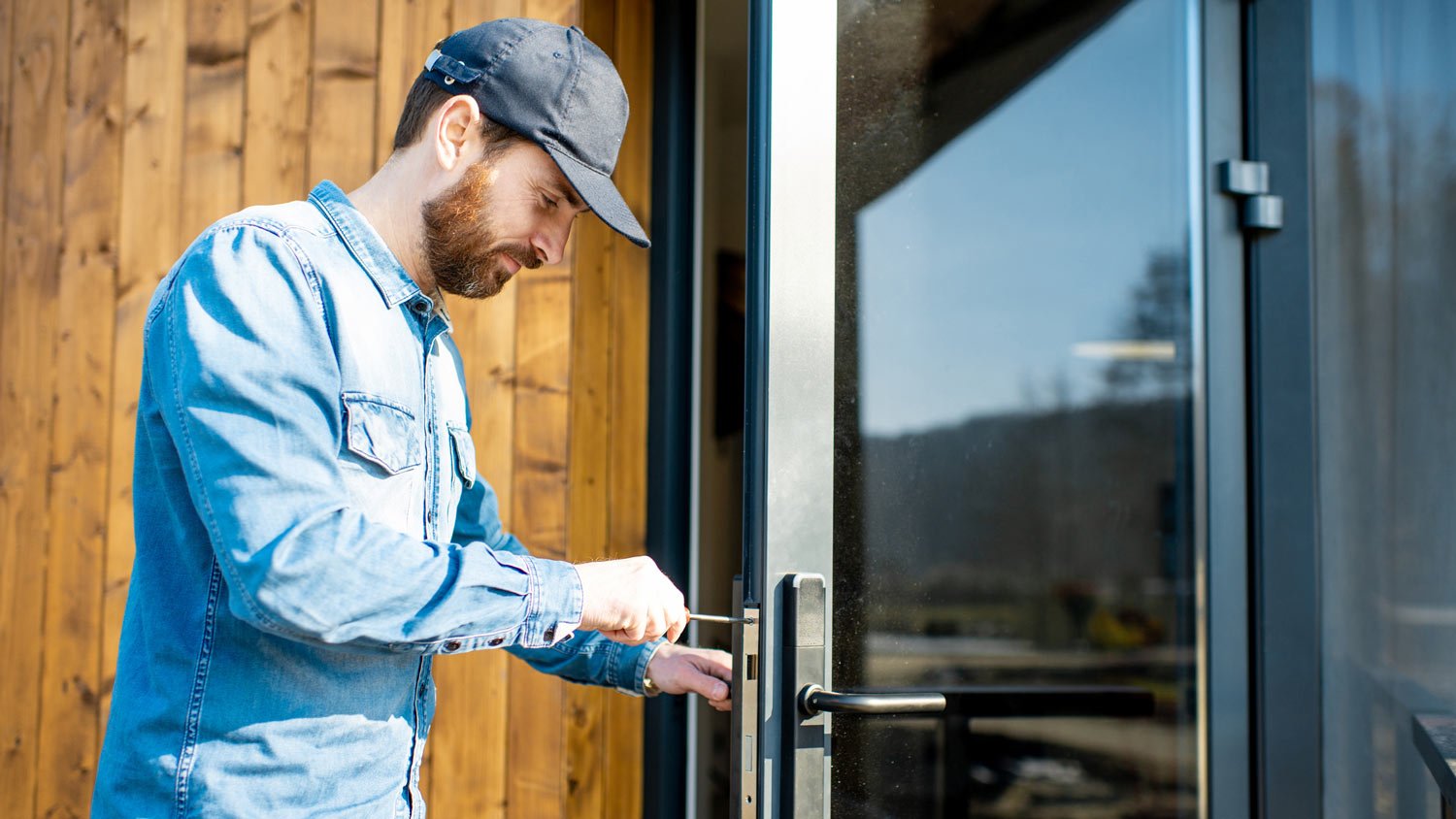Locked Out of Your House? Here's What to Do (and What Not Do)
Don’t get stuck on the outside looking in


It’s been a day, and you’re walking up to your front steps when the realization hits: You’re locked out of the house. Don’t stress! These things happen to the best of us, and you’re sure to find another way in.
If you’re in a pinch and can’t call a locksmith right away, you have options. These are the best things to do (and not do) when you get locked out.

How to Get Into Your House Without a Key
You’re locked out—it happens. Here are the first steps you should take to get back in.
Check All Doors and Windows
Before the panic sets in, scope the perimeter of your home. Did you forget to lock the back door? How about one of the basement or ground-floor windows? It pays to check every possible entrance first, even before calling for help.
While we’re on the topic, this doesn’t mean that you should try to leave a door or window open in case you lock yourself out of the house. This leaves an easy “in” for burglars, even if your neighborhood is normally safe. Protecting your home from theft means always sealing potential entrances, whether you’re home or not—but it’s always possible that you might have forgotten one.
Grab a Card
Find the most flexible card you have in your wallet and slowly wiggle it in between the door and the doorjamb to try to force the bolt mechanism back into the door. Jiggling the doorknob while inserting the card may help. Avoid using an I.D. or credit card, as these are usually too stiff. Plus, damaging them will only add to your troubles.
Note: Many locks are now designed to prevent this, and cards won’t work on deadbolts. Still, it’s worth a shot.
What Not to Do When You’re Locked Out of the House
When you notice that distinct lack of keys jingling, your heart starts racing, and panic can quickly set in. Take a deep breath and stay calm; you can figure something out that won’t harm the lock (or you).
Here are some major don’ts when you’re locked out:
Don’t try to pick the lock—it’s not likely to work, and you could cause damage or cut yourself. Remember the cost to change a lock before you start fiddling with it.
Don’t try to climb to a second-story window to get in, as this can be extremely dangerous for obvious reasons.
Don’t break any doors or windows unless it’s a serious emergency; these are expensive to replace, and you’ll probably regret it.
Don’t panic—worrying won’t unlock the door: it will only make you feel worse.
Above all, remember to be kind to yourself. Everyone has lost or forgotten their keys at some point, and you’ll be inside soon enough. If you stay calm and run through your options, you’ll get through this.
What to Do in the Future

Getting locked out of your house really puts things into perspective: a key might seem small and trivial, but it matters when you don’t have one. Consider these solutions to prevent a future lockout.
If you're locked out of your home during an emergency with kids or pets stuck inside, call 911 for help.
Give an Extra Key to a Trusted Neighbor
If you’re lucky enough to have a neighbor you can trust with your house key, give them a copy. It might come in handy later on.
Keep a Spare Key in Your Wallet or Purse
Spare keys are very inexpensive to make and always worth the extra investment. If you keep a copy of your key hidden in your purse or wallet, you’ll have a second chance when you’re locked out. Since you’re much less likely to forget these items, it’s a good idea to tuck a spare key somewhere in case of emergencies.
Consider Installing a Keyless Lock

Thankfully, technology has evolved to accommodate human forgetfulness. Coded locks allow you to enter your home with a simple code. You can also install a smart lock, which unlocks your door via an app. Either way, these are worth looking into if you never want to go through this again.
Hide a Spare Key Around Your Home
Cleverly hide a key on your property, but be aware that burglars are very resourceful and can figure out many of the typical spots. Those fake hide-a-key rocks are dated and conspicuous, while a mailbox or doormat both invite trouble. In other words, this one’s going to require you to think outside of the box.
Speaking of boxes, why not put the key in a hidden lockbox with a code? That way, you’ll have peace of mind and a guaranteed way to get in.
Should You Try Picking the Lock?
Movies make lockpicking with a hairpin look like a piece of cake. But in real life, it’s best to leave the unlocking to the pros. Different types of locks also have different mechanisms and some are more complicated to unlock than others. If you’re inexperienced and don’t have the proper tools, you can damage the lock by trying to pick them.
How to Hire a Locksmith
If all else fails, hiring a locksmith is always an option. In fact, you might want to call them first thing.
Still, as much as you might want this to end, don’t let haste dictate who you hire. If you’re calling in a pro, always get your price in writing to avoid bait-and-switch locksmith scams. These aren’t the norm, but it’s important to be aware of them.
Luckily, there are plenty of locksmiths near you who can safely get you in at a fair price. To save yourself the stress of looking when it’s too late, research locksmith assistance and costs ahead of time. Then, find your pro and save them in your contacts in case of emergency.
Frequently Asked Questions
It’s possible, but depends on the design of your lock. Some door locks that lack a keyhole do boast a small hole on the exterior handle or knob. This hole’s primary function is to allow water to drain out of the lock, in addition to giving homeowners an easy spot to insert lubrication. However, you can typically use a paperclip in this pinhole to unlock the door by manipulating the mechanism inside.
In some cases this is possible, but it’s not advisable as the screwdriver is likely to leave marks all over the wall and a noticeable dent on the door. Move slowly and carefully if you have to use this method, and consider calling an emergency locksmith right away instead of trying to break in.
Deadbolts are solid and durable as can be, but the pin and tumbler can still be forced open, thus making this type of lock susceptible to picking. Most types of deadbolts are harder to pick than a traditional spring-based lock, though. It requires a specialized lock pick and a tension wrench to align all of the pins, thus unlocking the door.





- How to Get a Broken Key Out of a Lock (With Tools You Already Have)
- How to Get a Stuck Key Out of a Lock, Even in a Panic
- 9 Ways to Fix a Key That’s Not Turning in a Lock
- How to Pick a Lock (And When It's Time to Call a Locksmith)
- Which Home Projects To Put On Your To-Do List First After Moving
- 6 Tips to Prepare for a Successful Home Remodel
- Smart Door Locks vs. Traditional Locks: Key Comparisons
- How to Improve Front Door Security: Full Guide
- Which Is Better: Rekeying vs. Changing Locks?
- 5 Common Signs Your Locks Have Been Tampered With and What to Do About It















